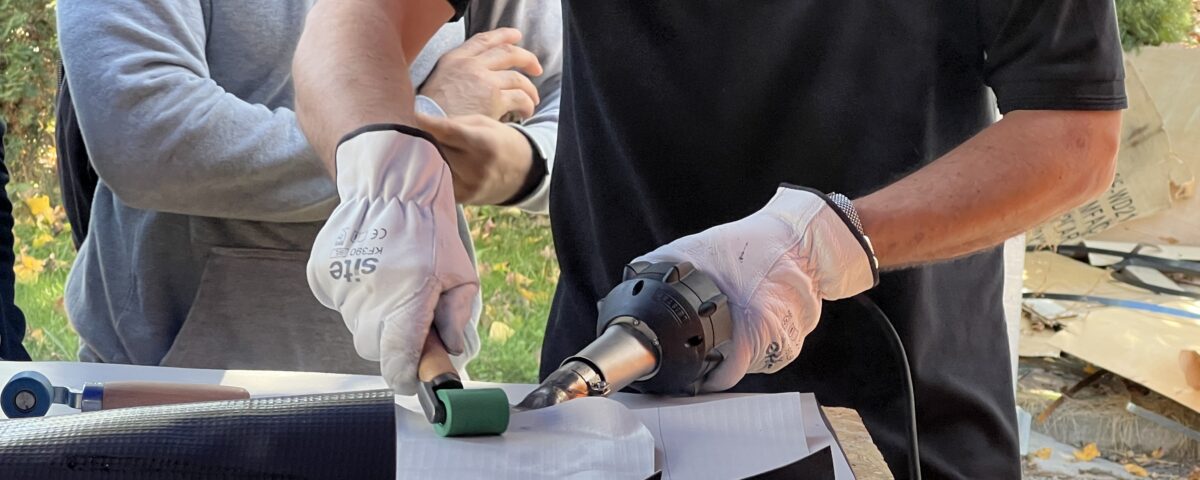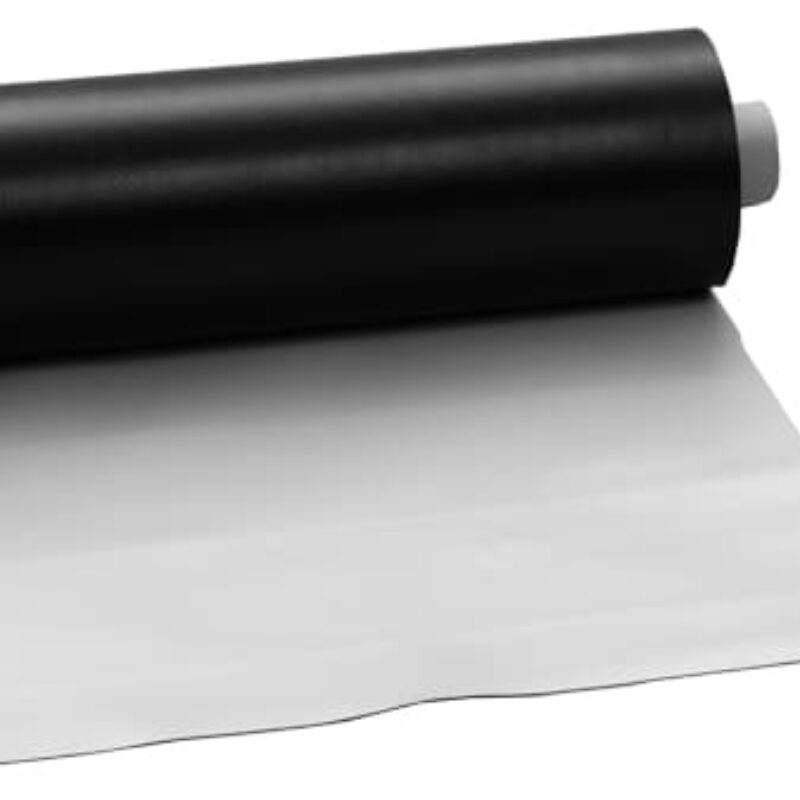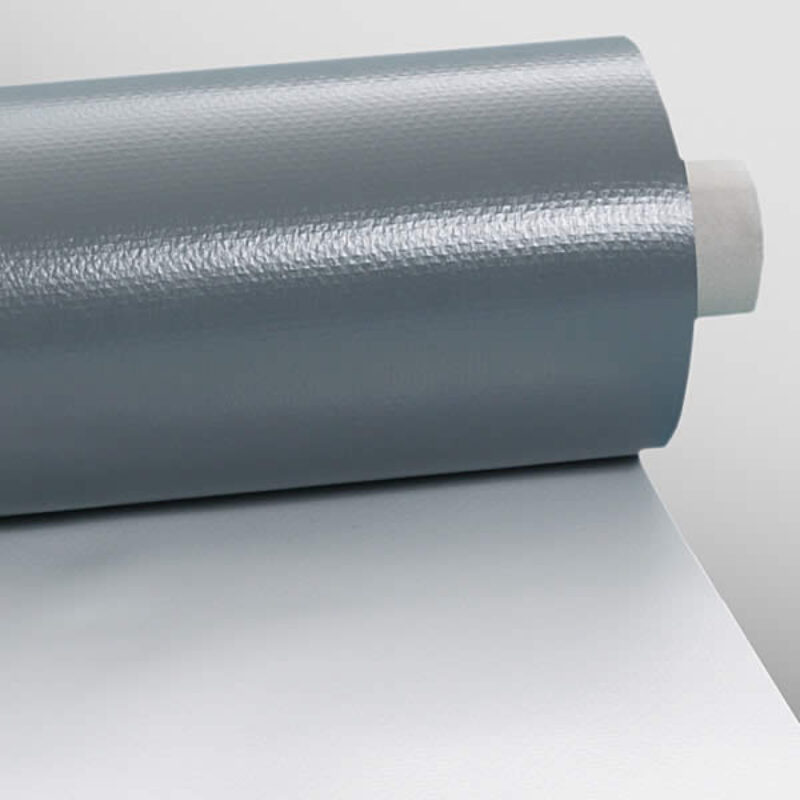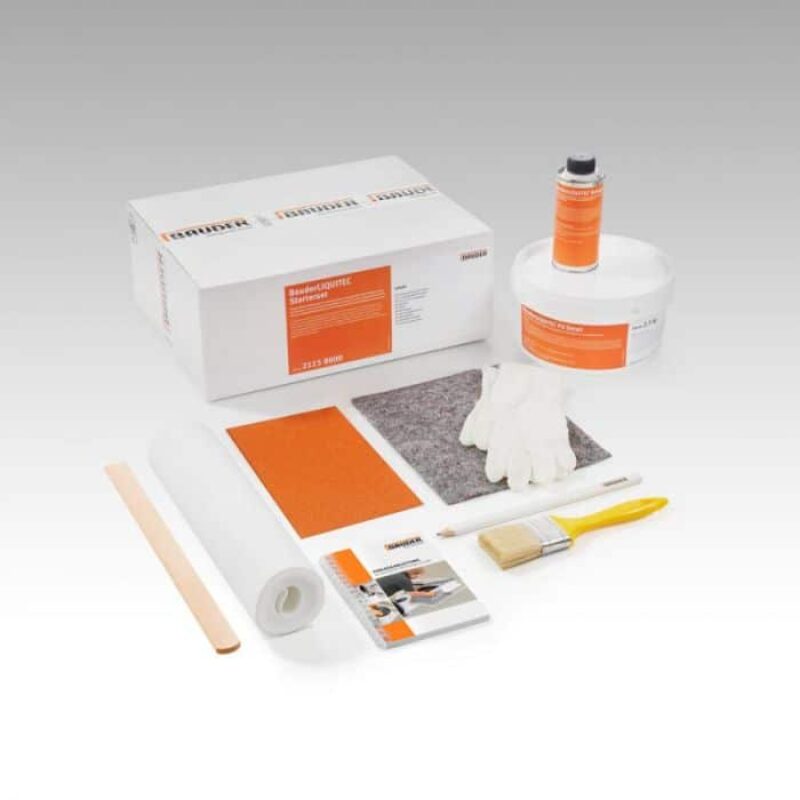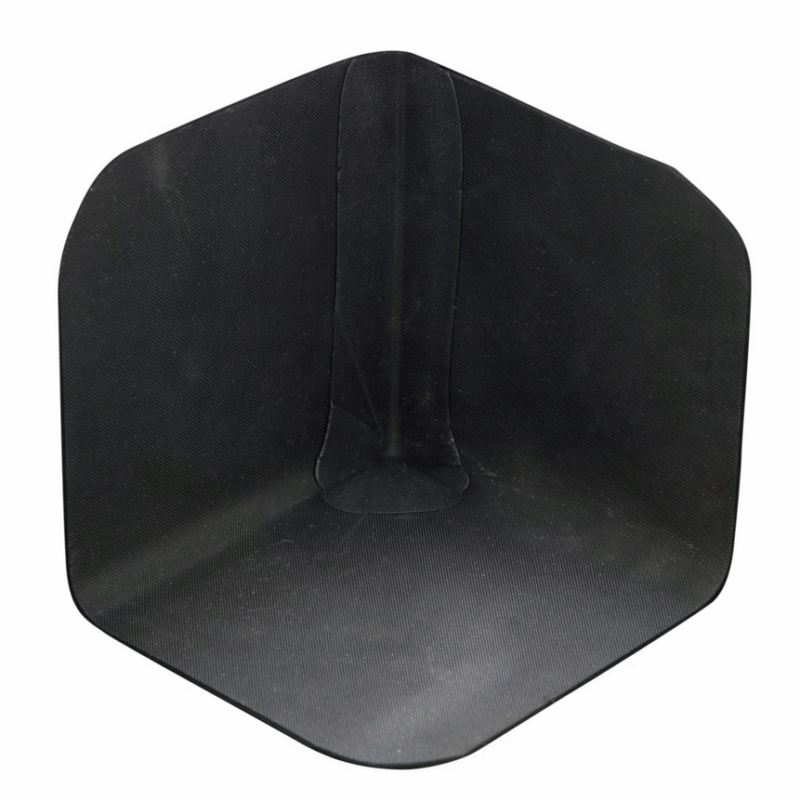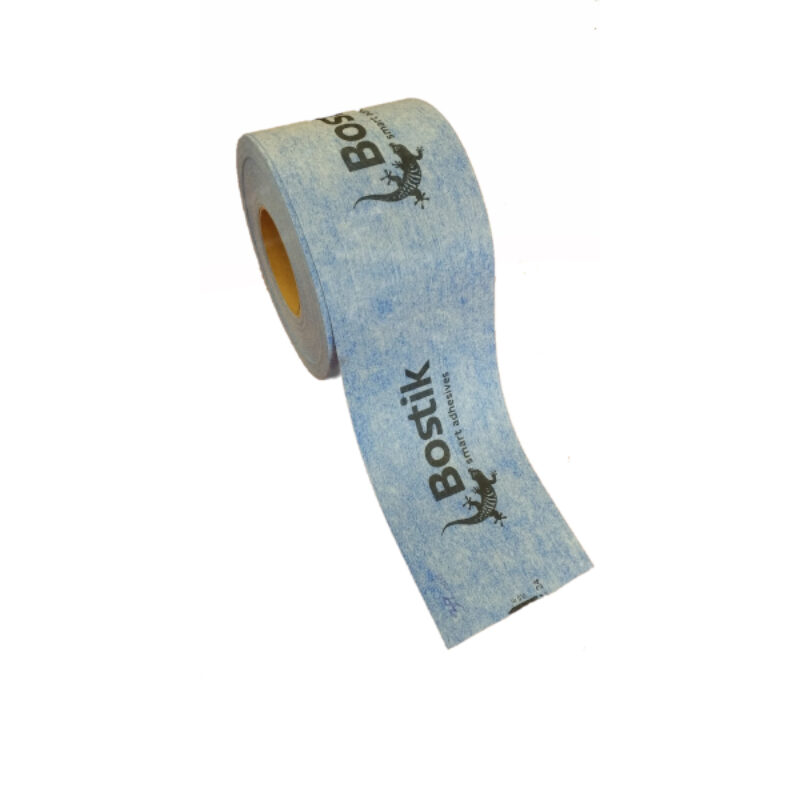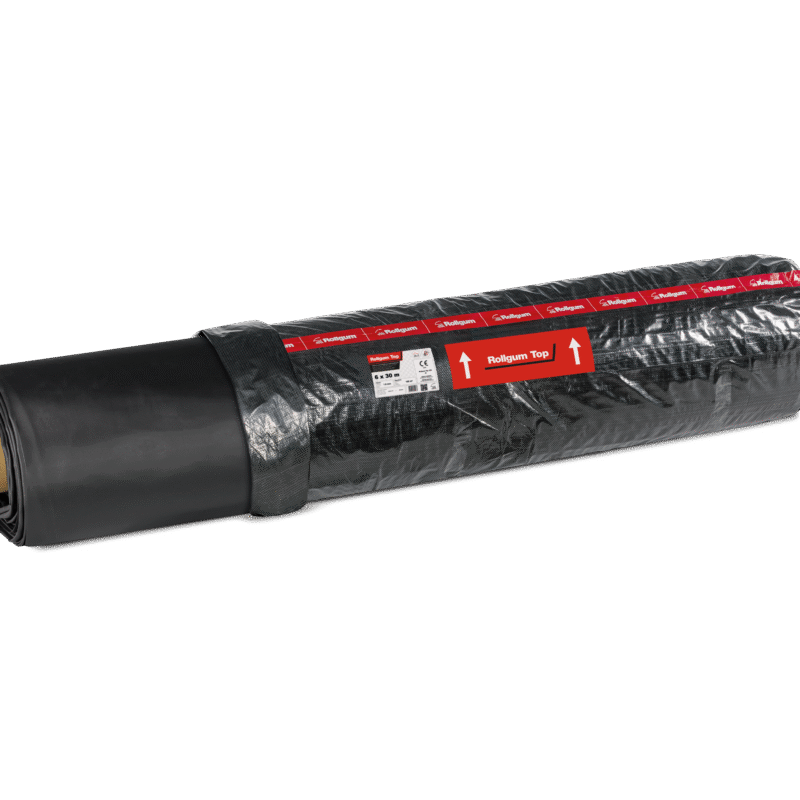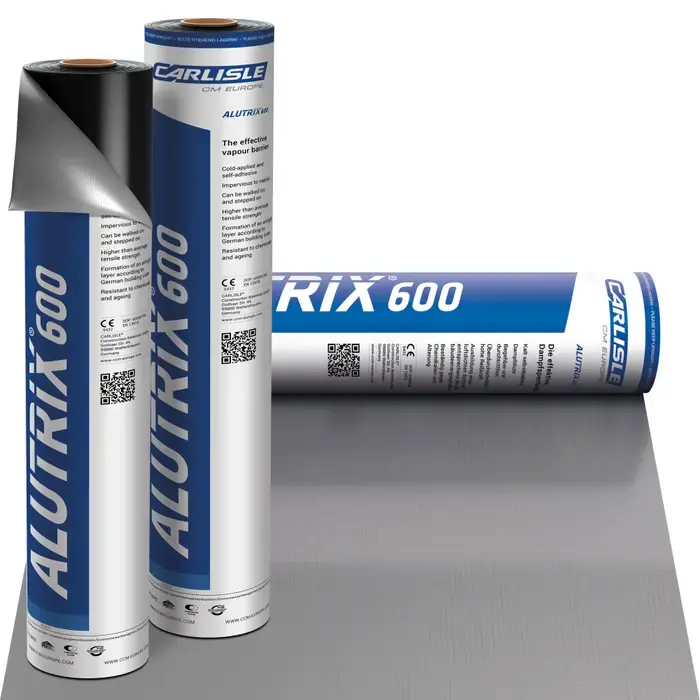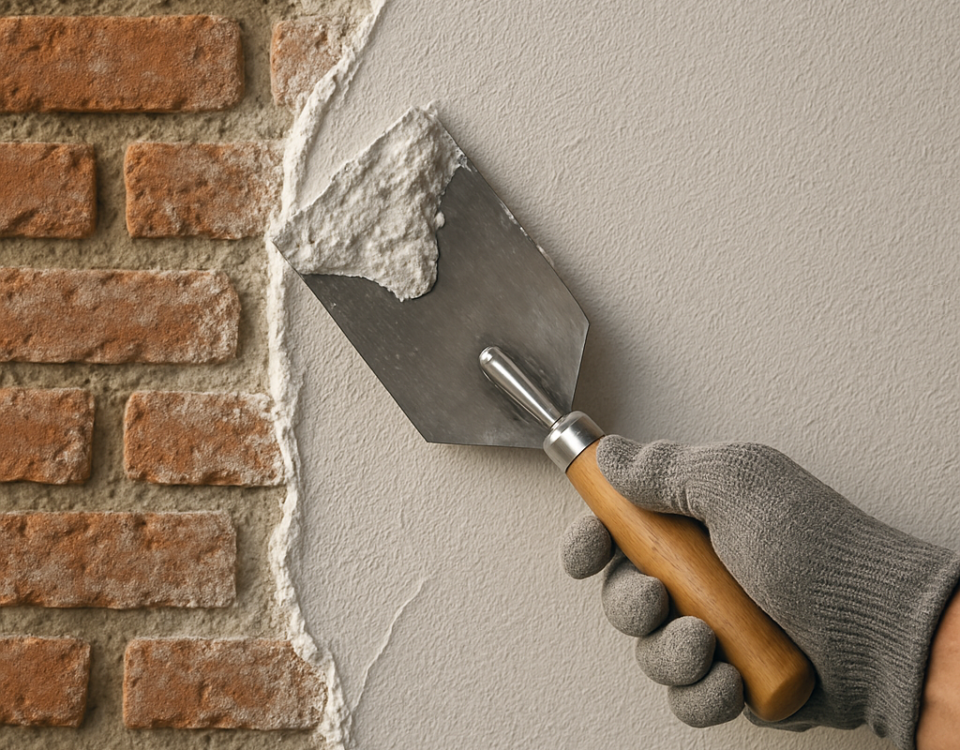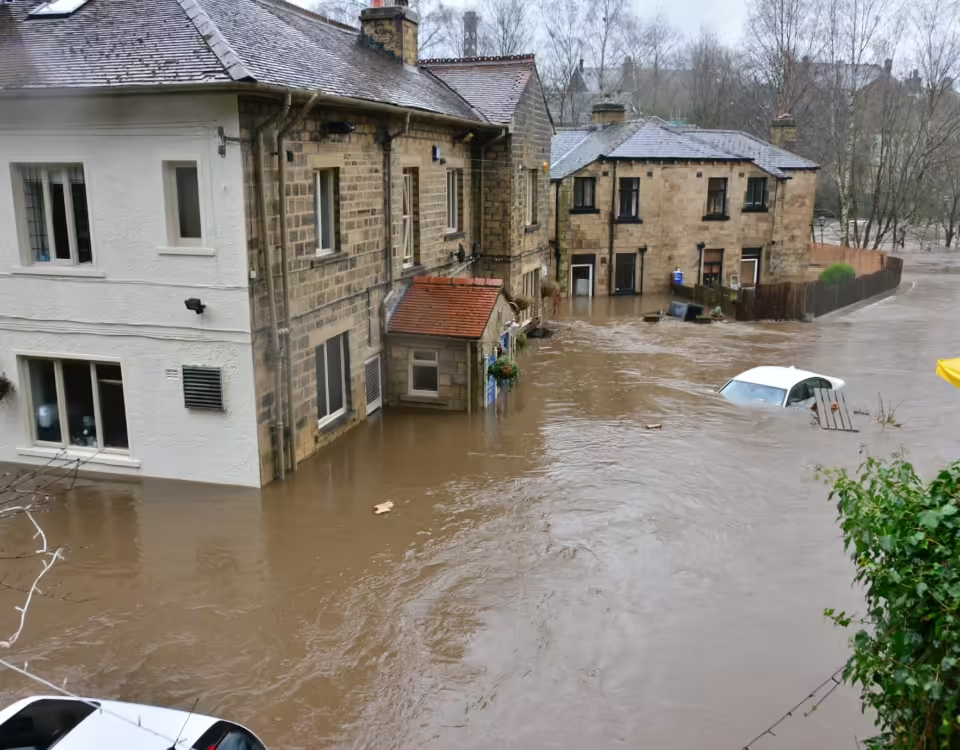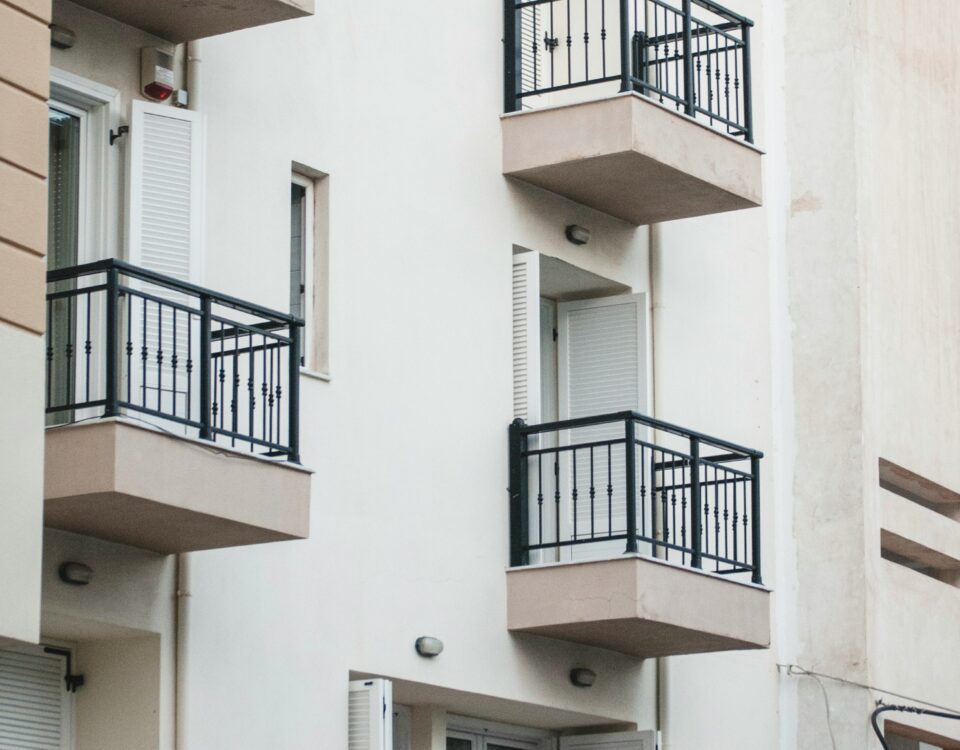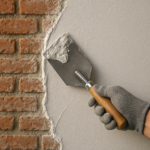
Why can classic mortars damage historic walls?
May 5, 2025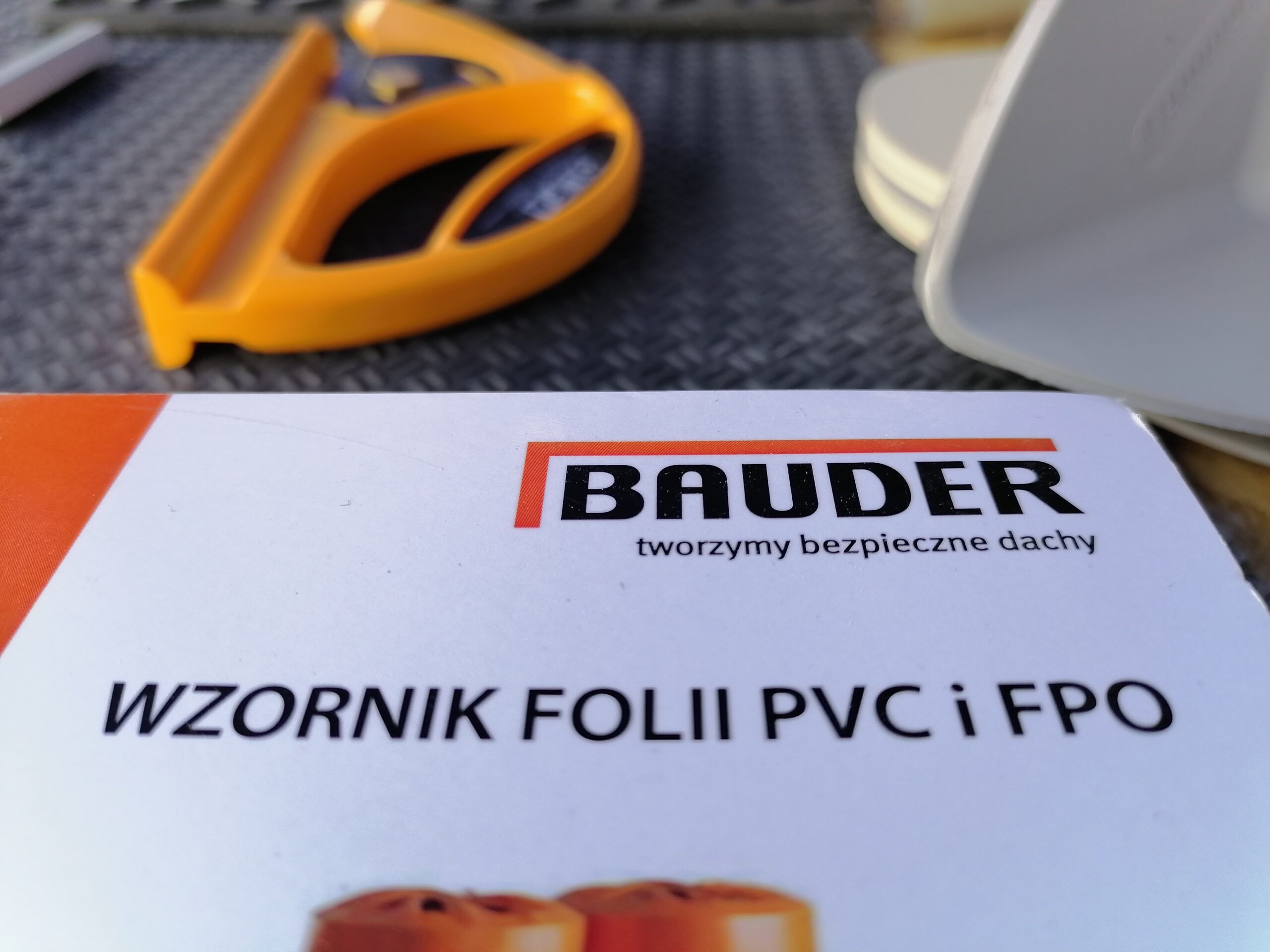
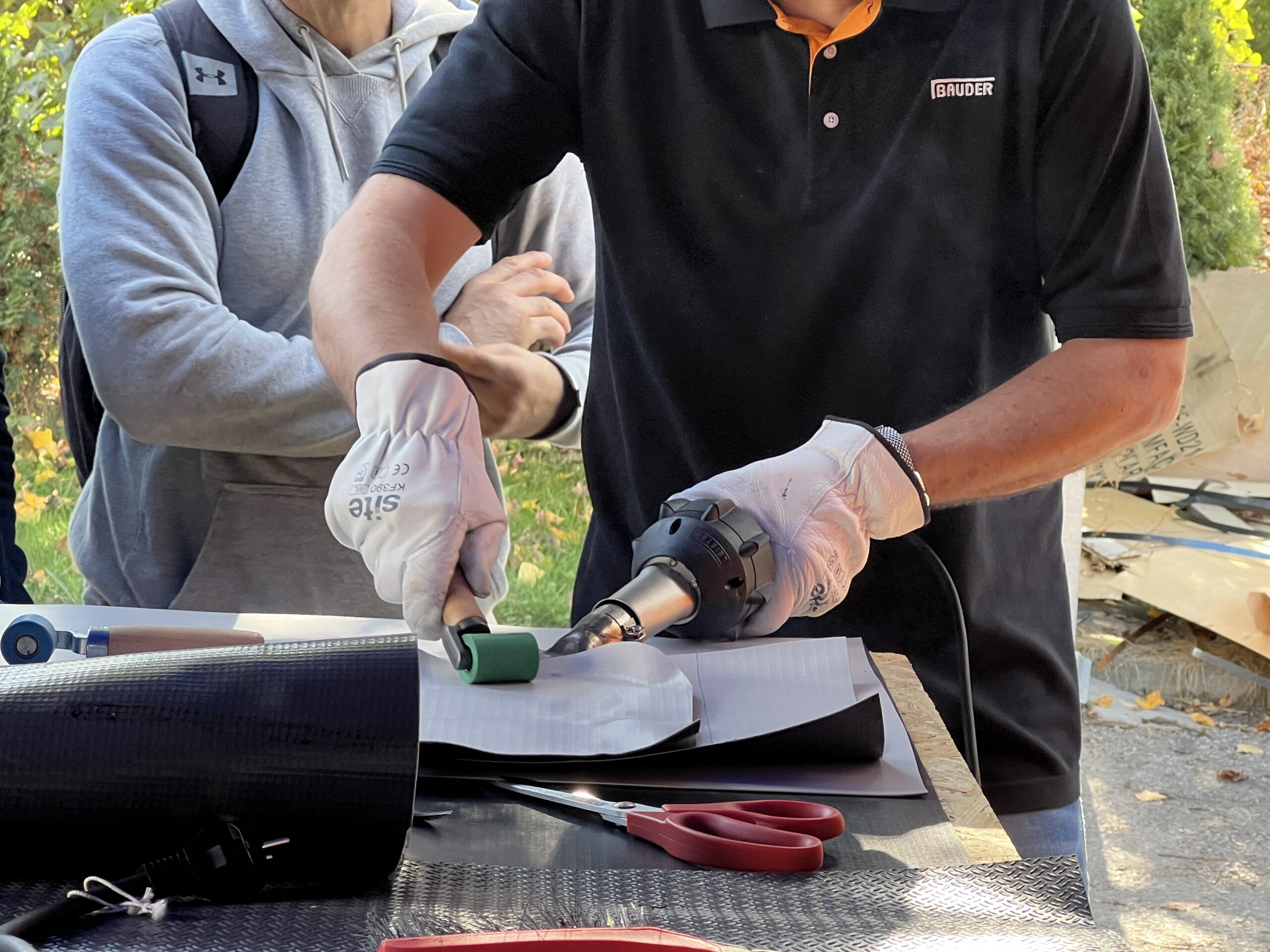
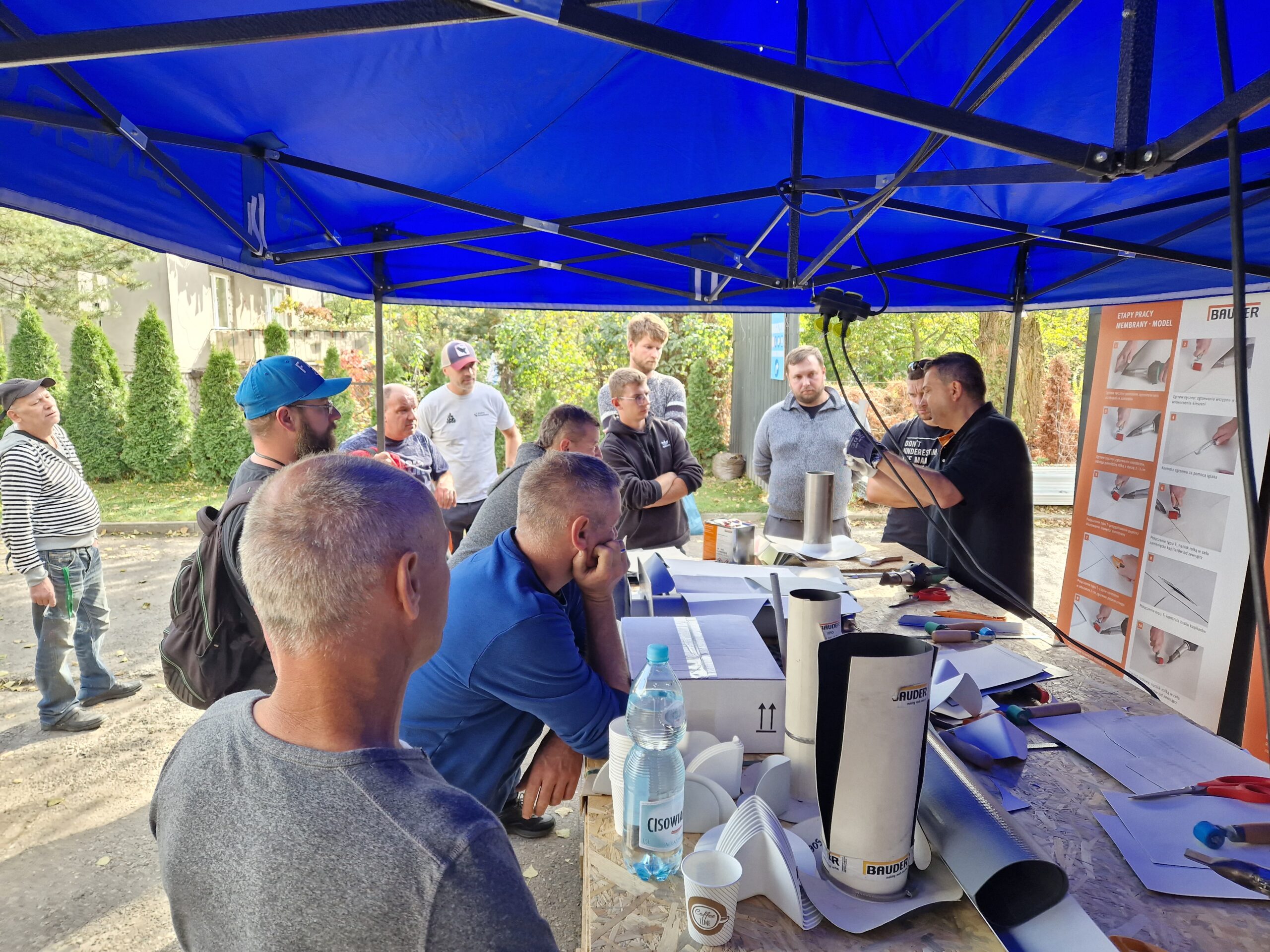
Fundamental Chemical and Material Differences
TPO/FPO vs. PVC Membranes – What Sets Them Apart?
Both TPO/FPO and PVC technologies are used to effectively protect roofs, terraces, and balconies from moisture. However, they differ significantly in chemical composition and performance characteristics.
TPO/FPO membranes are made from flexible elastomers, combining synthetic rubber (ethylene-propylene) with polypropylene. They can be additionally reinforced with a fiber mesh. These membranes offer high waterproofing and long service life – even a single layer provides full protection in moisture-prone areas. TPO/FPO contains no toxins, dioxins, or halogens, making it an environmentally friendly material. It features high resistance to UV radiation, weathering, aging, mechanical damage, chemicals, and root penetration. It also boasts high vapor permeability and a low welding temperature (350 °C), which helps reduce application costs. Installation can be done mechanically, chemically, or by heat welding.
PVC membranes (polyvinyl chloride), used since the 1960s, perform well as single-layer waterproofing for flat roofs, balconies, and terraces. They provide watertight protection while allowing vapor diffusion from inside the building. PVC offers excellent wind resistance and is a flame-retardant material that can self-extinguish in the absence of strong external stimuli. It is recyclable and has low CO₂ emissions during production. Moreover, it does not contain heavy metals such as lead or cadmium. However, prolonged UV exposure can cause the material to become rigid over time, which is why additional protective layers are often applied.
In summary: TPO/FPO membranes are distinguished by superior durability, resistance to extreme temperatures, and environmentally friendly composition. In contrast, PVC membranes remain a popular and proven solution, offering a favorable price-to-performance ratio, recyclability, and suitability for modern roofing systems.
Environmental and Technological Differences
The key difference between PVC-P and FPO lies in the use of plasticizers. In PVC-P membranes (e.g., THERMOFOL M), plasticizers are essential for flexibility but also make the material more susceptible to aging. Bauder's FPO membranes are plasticizer-free, which ensures greater chemical stability and enhanced ecological properties – the manufacturer emphasizes their chlorine- and heavy metal–free composition and the possibility of complete or thermal recycling without residue.
When it comes to welding technology, PVC has an advantage due to its softness, which makes it easier to weld compared to FPO membranes.
PVC or TPO/FPO – Which Material Should You Choose?
The choice of membrane should be based on roof conditions and investor expectations. In environments exposed to chemicals, or where resistance to low temperatures and long-term durability is crucial, FPO/TPO membranes are the more suitable option. On the other hand, PVC membranes are ideal for projects that require fast installation and cost-effective solutions.
Installation of PVC and FPO Membranes
Bauder roofing membranes, whether made of PVC (e.g., THERMOFOL M) or FPO (e.g., THERMOPLAN, THERMOFIN), are designed for loose-laid installation without full-surface adhesion to the substrate. The membranes are mechanically fastened or weighted down using ballast (e.g., gravel, slabs, or a green roof system), ensuring effective protection against wind uplift forces. The seams between membrane sheets are welded using hot air, which guarantees both durability and watertightness.
When installing over heat-sensitive insulation materials (such as EPS) or in ballasted systems, it is essential to use a protective separation layer, such as a geotextile with a minimum weight of 300 g/m².
Bauder THERMOFIN and THERMOPLAN membranes are also available in variants with a fleece backing (e.g., F 15 V, T 15 V), allowing for bonded installation using appropriate adhesives such as Bauder Vlieskleber 1014. The entire Bauder installation system is engineered to adapt to varying technical and environmental conditions, ensuring reliable and long-lasting waterproofing for flat roofs.
When to Choose an FPO Membrane – BauderTHERMOPLAN or THERMOFIN
FPO membranes (THERMOPLAN, THERMOFIN) are recommended when:
-
the project includes a green roof or a ballasted roof (gravel, slabs),
-
high resistance to UV radiation and aging is required,
-
compliance with environmental standards is important (free from plasticizers and chlorine, recyclable),
-
the design calls for a system with enhanced fire resistance – THERMOPLAN is recommended for stricter fire safety requirements,
-
the investor expects a long-lasting and stable solution for decades of use.
FPO membranes are the ideal choice for those seeking not only effective waterproofing but also modern technology and alignment with sustainable building practices.
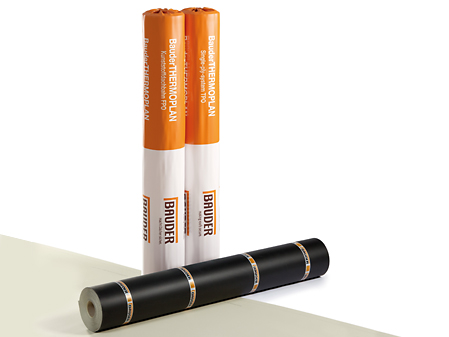
Availability of BauderTHERMOPLAN and THERMOFIN FPO Membranes
FPO roofing membranes such as BauderTHERMOPLAN and BauderTHERMOFIN are available at SANIER on a made-to-order basis. Due to the wide variety of types, thicknesses, and widths, lead times and availability may vary depending on the specific project requirements.
For detailed information regarding availability, delivery times, and a customized price offer, please contact us at:
Phone: (+48) 883 292 303
E-mail: kontakt@sanier.pl
Detail Waterproofing on Roofs Using Bauder LIQUITEC PU Detal
In roofing systems based on PVC or FPO membranes, critical areas such as roof edges, wall junctions, and service penetrations—e.g., pipes, drains, vents, or mounting bases for technical equipment—require particular attention. For these sensitive points, the use of Bauder LIQUITEC PU Detal is recommended. This one-component polyurethane liquid plastic is designed to create durable and watertight seals.
The product is ready to use straight from the container, with no need for mixing, and it does not require priming on most standard substrates, including mineral felt with chippings, concrete, screed, metal, or wood. Thanks to its thixotropic properties, LIQUITEC PU Detal can also be applied on vertical surfaces, maintaining the ideal consistency during application. It is applied in two layers with a polyester fleece reinforcement, using the "wet-on-wet" method, which ensures a seamless and elastic connection with the roofing membrane.
LIQUITEC PU Detal contains no solvents, emits no strong odors, and does not include hazardous substances. It can be used in a wide temperature range—from +5°C to +55°C. Its high resistance to UV radiation, alkalis, and weather conditions (it becomes rain-resistant just 30 minutes after application) makes it a perfect complement to Bauder’s roofing systems. The consumption is approximately 3.1 kg/m², and the surface is walkable after 4–8 hours. It is an indispensable solution wherever reliable, localized waterproofing of membrane junctions is required.
How to Choose Waterproofing for a Flat Roof or Terrace/Balcony?
Selecting the right roofing membrane system is a crucial decision that impacts the durability of the entire roof, the safety of use, and the long-term operating costs. Both PVC-P and FPO-PP membranes have their place in modern construction—what matters most is tailoring the system to the specific needs of your project.
If you are still unsure which membrane is the better choice for your roof—whether the proven, standard PVC-P system (BauderTHERMOFOL M) or the modern, eco-friendly, and versatile FPO solution (BauderTHERMOPLAN or BauderTHERMOFIN)—reach out to our technical advisor.
We will help you:
-
select the right system based on your building’s construction and operational conditions,
-
match the appropriate thickness, color, and fastening method to your design,
-
obtain all necessary project and technical documentation,
-
complete your order with delivery included.
Call or write to us for a personalized consultation—we’ll help you choose the membrane that best fits the needs of your investment.
Check the availability of Bauder roofing membranes in our store or inquire about a technical and commercial offer—we’re here to assist you.
Need help with the right technology and materials for waterproofing?
Contact us!
- Krakow, Adam Vetulani Street 5







